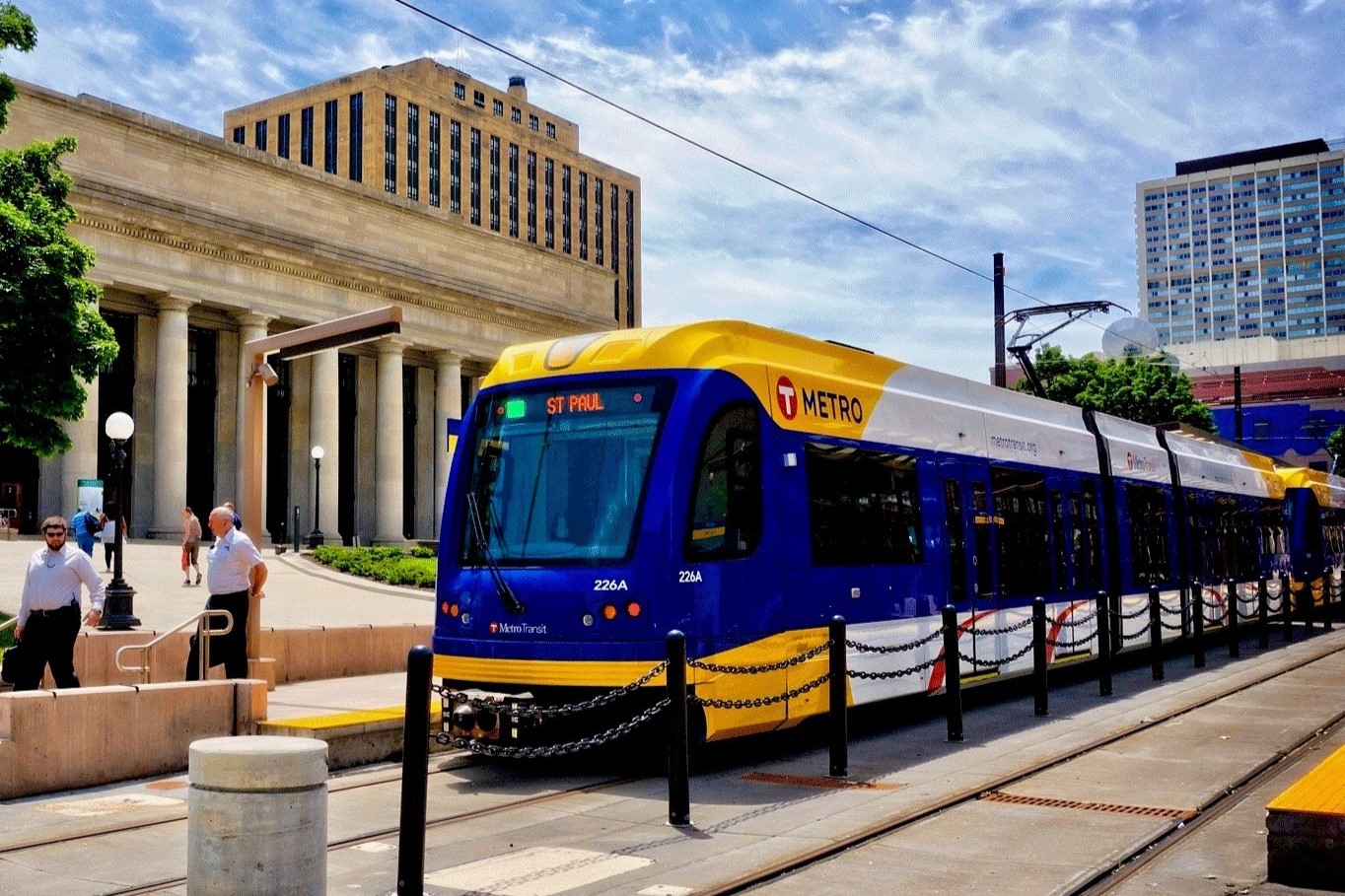
Metro Transit to begin $35 non-criminal citations, new code of conduct
Beginning Monday, Metro Transit’s community service officers will issue citations ranging from $35 to $100 to transit riders who fail to pay their fare, with a heavy focus on the two light rail lines that traverse Minneapolis and St. Paul.
A first-time offense would result in a $35 non-criminal fine, which can be paid off within 90 days. The public transit authority offers other means of getting the fine waived or reduced, such as watching an educational video at a service site in downtown Minneapolis or downtown St. Paul or loading pre-payments onto a Go To card or transit fare app.
Subsequent offenses will result in fines of $55, $75 and then $100, as well as suspensions from accessing transit service for 60 days after the third offense or 120 days after the fourth offense. More information is online at metrotransit.org/citations.
Transit advocates have long called for a non-carceral approach toward fare enforcement and improvements to the overall rider experience, which suffered heavily during the pandemic.
Monitoring fare compliance
While overall ridership numbers have climbed, many riders who had avoided the light rail during the early days of COVID-19 continue to give it a wide berth, some because of remote work and others citing negative experiences on the trains, such as smoking and crude or unruly behavior.
Supported by a new regional sales tax that took effect in October and changes in state law, Metro Transit is now building teams of non-police personnel to monitor fare compliance and assist riders.
The Metropolitan Council, the regional planning agency that oversees Metro Transit, had long sought the authority to impose non-criminal citations, noting that even frequent fare evaders whose cases were forwarded to prosecutors were rarely charged with a crime. Criminal citations come with a fine of $180.
Efforts to authorize administrative citations through the state Legislature were hampered by Republicans, who called them soft on crime, but were approved in the last session by Democratic majorities in the House and Senate and then signed into law by Democratic Gov. Tim Walz.
Transit experience
While issues such as smoking on light rail cars persist, transit officials hope to draw passengers back with a cleaner, calmer transit experience.
System-wide, average weekday ridership, which exceeded 250,000 daily trips in 2019, dropped to between 50,000 to 100,000 trips for much of 2020 and 2021. Ridership has climbed gradually, in stops and starts, since at least early 2022, exceeding 150,000 trips in September, a recent peak.
Across the transit system, Metro Transit documented a 33% drop in reported crimes over the course of the first nine months of 2023. According to the transit authority, conditions have improved at some of the most challenging locations such as the Lake Street-Midtown light rail station, where police officers and supplemental private security are now routinely stationed.
At the same time, Metro Transit has actually documented an overall increase in crime, year over year, attributed to Metro Transit police being more pro-active in documenting drug violations, trespassing, disorderly conduct and fare evasion under new leadership. Metro Transit Police Chief Ernest Morales III, who spent most of his career in the New York City Police Department, began the job in late February.
The Met Council this summer launched the “Transit Service Intervention Project,” a $2 million effort with the goal of performing one-to-one outreach to the homeless and other vulnerable passengers at stations and platforms. Contracts with 10 social service and community organizations began in June, and the Met Council approved a second round of contracts in early November.
More changes
More changes are coming.
On Dec. 13, the Met Council is expected to approve a new code of conduct that clarifies certain expectations around passenger behavior. While the Legislature has said sleeping on trains cannot be prohibited, the new code emphasizes that other non-criminal behavior — such as eating on a vehicle or blocking an aisle — will not be tolerated.
“There’s a lot of carryover,” said Drew Kerr, a spokesperson for Metro Transit. “What we’re doing with this revision is making it more prominent across the system. There will be new signs. And this is the first time the Met Council itself has ever been asked to adopt it.”
Signage will be posted by Feb. 1, Kerr said.
Also underway is a study of whether to retrofit light rail platforms with fare enforcement barriers such as gates or turnstiles. The study will focus on four stations in particular: the Green Line’s Snelling Avenue station, the Hennepin Avenue warehouse station which serves both lines, and both the Franklin Avenue and 46th Street stations on the Blue Line.
“Each station is configured a little differently,” Kerr said. “The Snelling Avenue station, eastbound and westbound are divided. On Hennepin Avenue, there’s one shared platform. On 46th Street, there’s trains adjacent to buses.”
Related Articles
New Woodbury-Oakdale bridge over I-94 will open this week
I-94 closes this weekend for Gold Line Bus Rapid Transit construction work
Metro Transit, Molson Coors offer fare-free bus and train rides to and from Vikings vs. Saints today


